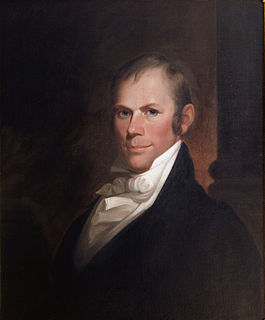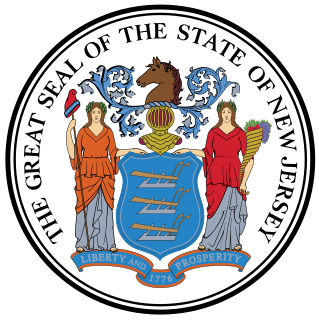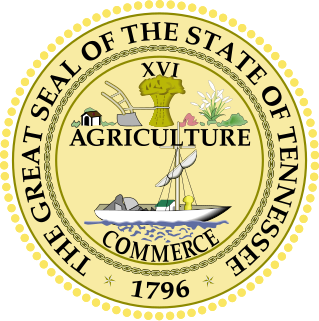
The 13th United States Congress was a meeting of the legislative branch of the United States federal government, consisting of the United States Senate and the United States House of Representatives. It met in Washington, D.C. from March 4, 1813, to March 4, 1815, during the fifth and sixth years of James Madison's presidency. The apportionment of seats in the House of Representatives was based on the Third Census of the United States in 1810. Both chambers had a Democratic-Republican majority. The first two sessions were held at the Capitol building while the third, convened after the Burning of Washington, took place in the First Patent Building.

The 14th United States Congress was a meeting of the legislative branch of the United States federal government, consisting of the United States Senate and the United States House of Representatives. It met in the Old Brick Capitol in Washington, D.C. from March 4, 1815, to March 4, 1817, during the seventh and eighth years of James Madison's presidency. The apportionment of seats in the House of Representatives was based on the Third Census of the United States in 1810. Both chambers had a Democratic-Republican majority.

George Washington Campbell was an American statesman who served as a U.S. Representative, Senator, Tennessee Supreme Court Justice, U.S. Ambassador to Russia and the 5th United States Secretary of the Treasury from February to October 1814.

Elections to the United States House of Representatives for the 14th Congress were held at various dates in different states between April 1814 and August 1815 during President James Madison's second term.
The United States Senate elections of 1814 and 1815 were elections that had the Democratic-Republican Party lose a seat but still retain an overwhelming majority in the United States Senate. Unlike in recent elections, the minority Federalists had gone into the elections with a chance of regaining their long-lost majority had they swept almost all the seats. However, only one seat switched parties. Two seats held by Democratic-Republicans were left unfilled until long after the next Congress began.

The 1814 United States House of Representatives elections in New York were held from April 26 to 28, 1814, to elect 27 U.S. Representatives to represent the State of New York in the United States House of Representatives of the 14th United States Congress.

The 1816 United States House of Representatives elections in New York were held from April 23 to 25, 1816, to elect 27 U.S. Representatives to represent the State of New York in the United States House of Representatives of the 15th United States Congress. At the same time, a vacancy was filled in the 14th United States Congress.

Pennsylvania held its elections October 11, 1814.

Massachusetts held its elections November 7, 1814. State law required a majority vote for election, which was not met in two districts, leading to a second election January 6, 1815.

New Hampshire held its election August 29, 1814.

New Jersey held its election October 10–11, 1814. The state returned to an at-large basis for electing its representatives, abolishing the short-lived districts of the previous election.

A special election was held in Tennessee's 5th congressional district September 15–16, 1814 to fill a vacancy left by the resignation of Felix Grundy (DR) earlier that year.

Ohio held its elections October 11, 1814.

Kentucky held its elections August 3, 1814.

The United States state of Virginia held elections in April 1815.
The 1814 United States elections occurred in the middle of Democratic-Republican President James Madison's second term, during the First Party System. Members of the 14th United States Congress were chosen in this election. During the 14th Congress, Indiana joined the union. The election took place during the War of 1812.

Although elected in the 1814–1815 United States House of Representatives elections in Massachusetts, Daniel A. White (Federalist) of the 3rd district was offered, and accepted, the position of probate judge in Essex County before taking his seat in Congress.
This page is based on this
Wikipedia article Text is available under the
CC BY-SA 4.0 license; additional terms may apply.
Images, videos and audio are available under their respective licenses.













